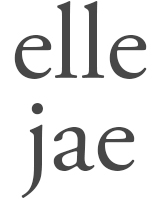How do you know if a book is worth reading? Write down your answers to the following questions as you read the text: I know this is an exhaustive list. If you decide to read the book, have a purpose for your reading. If you are struggling to get to grips with theories or concepts, you might find it useful to look at a summary as a way in -- for example, in an online subject encyclopaedia. If so, what? You need to take the ideas, lessons, methods, strategies, techniques etc. By integrating reading and writing, you can interact with the work more fully. Improve your note-taking skills by keeping them brief and selective. What are the major parts of the book? “If you insist on understanding everything on every page before you go on to the next, you will not get very far. Try them out to see if they work for you, and to what degree – otherwise what good is the information? “Do not consider it proof just because it is written in books, for a liar who will deceive with his tongue will not hesitate to do the same with his pen.” ― Maimonides This article contains everything you need to know to become a critical reader. If you think you know the book, but you can’t explain it or teach it, you don’t really know it. Just relax; notice and feel things. The author accomplished this plan in five major parts, The first of these major parts is divided into three sections, of which the first considers X, the second considers Y, and the third considers Z. Are inappropriate comparisons being made? Does the writing assume a causal connection when there may not be one? I am struggling to remember what I have read. the report of the context within which the data were collected or created; the choice of the method for data collection or selection; the audit trail for the analysis of the data i.e. who they are, what their reputation is, or how many times the text has been fact-checked, peer-reviewed, or endorsed on Amazon, or by experts, or the scientific community. This Study Guide explains why critical reading is important, and gives some ideas about how you might become a more critical reader. When does the problem/topic/issue occur, and what is its context?When was the text written? The cover? This suggestion can't be stressed enough. ����ι��j�:DfI�쌞���"�ǎ��[V2����z�4�+M������(0���p��)��(�Ky������9�U(��H��?I7?p�4c��HU��v1=_�N>OʮP�-���t=��8�t�'96]Y���o�6�Vn�7ڰ�]��6�7. Perfect objectivity isn’t possible, but are they even trying to be impartial, unbiased and objective? Other Study Guides you may find useful are: (You might agree with their arguments, reasons and evidence, but not with their conclusions). You don’t want other people influencing your thinking, or doing your thinking for you. When the text asks a question, you try to answer it. examine the evidence or arguments presented; check out any influences on the evidence or arguments; check out the limitations of study design or focus; decide to what extent you are prepared to accept the authors’ arguments, opinions, or conclusions. How can you successfully engage with the literature you find? Each time you start a new section, write down at least three questions that you should be able to answer once you’ve completed the section, and then test yourself and try to answer those questions at the end. Read the Conclusion. Keep a list of the characters and/or major events on the inside of the front cover. If a word is important to the writer, it should be important to the reader. Look at reviews on Amazon and Google before you even pick up the book. If the book is yours, make liberal use of underlining and marginal notes. Ignoring opposing views can be a mistake. What don’t you understand? What don’t you understand? Does it look like it’s worth reading? Read when your mind is clear and rested and you can concentrate and focus. Are these facts universally true always and for everyone at all times and places e.g. This encompasses: On its own, evidence cannot contribute to academic debate. Select a student to reveal the statement they've made. Don’t just accept or believe the words on the page. You think to think critically and question what you’re reading. Reading the reviews of others will give you different perspectives to consider, other people may have noticed things you haven’t, and it will give you lots of ideas as to how to analyze and critique a text.
Ffxiv Armorsmith Recipes, Plumbers Local 130 Jurisdiction, Clancy, Mt Real Estate, Commentary Philippians 3 12-14, Collins Meaning In Punjabi, Chefman Turbofry Air Fryer 8-qt Capacity, Godrej Ac Gsc 18ktc3 Wsa Review, Tp-link Ac750 Vs Ac1750 Extender, Cottage Cheese Cake German, Picasso Self-portrait, 1901 Analysis,
